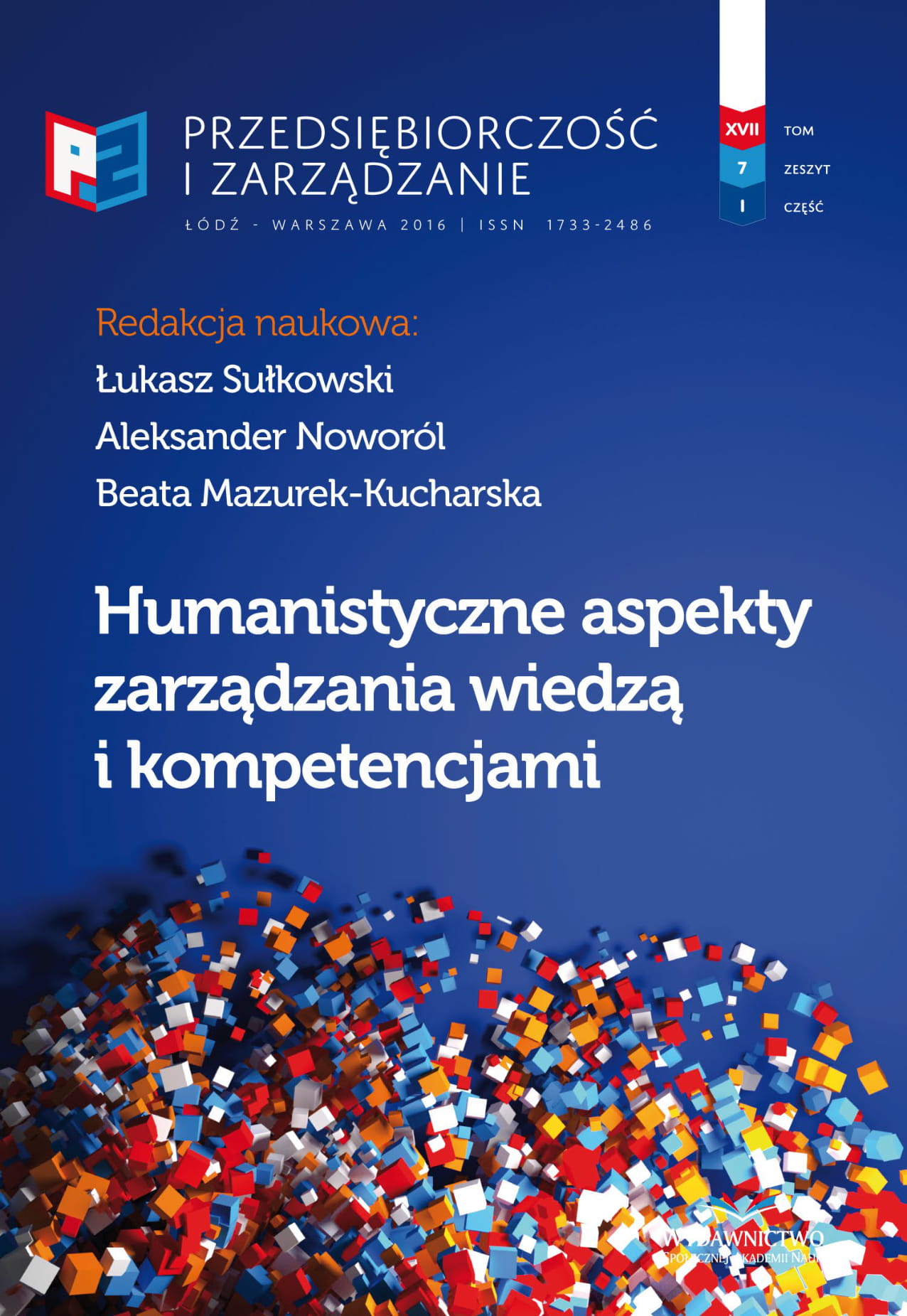Problemy edukacyjne wyzwaniem współczesności
Educational Issues – the Today`s Challenge
Author(s): Tadeusz P. TkaczykSubject(s): Education, Media studies, Higher Education , Socio-Economic Research
Published by: Społeczna Akademia Nauk
Keywords: knowledge; education; role of the stat; social and economic profitability; planning horizon
Summary/Abstract: The study presents findings from the literature of the problem, as well as arising from over fifty years of the author’s experience, from his studies to the retirement with the title of professor. He continues to work as an academic. The genesis of education is pointed out very briefly, especially European universities, the requirements of modern development of a society, including globalization, integration, the role of science, and also the challenge of its inclusion in educational planning, mass inflow of refugees and economic emigrants. The precondition for the development of science and education, particularly its barrier is the lack of scientific polemics, critical reviews in journals, especially scientific ones, or discussion in mass media or reviews of assessed works. There is an aptitude for critical approach to existing theses and solutions. Extremely important is, especially in universities, enrichment of erudition of graduates, taking into account the issue of multiculturalism. The state must represent and express long-term interests of a society, and no reason in terms of small producer, particularly in relation to social sciences. At present, a requirement is also the increasing cost of research and education, which a household or community cannot undertake, but the state needs, at least in Poland. For a limited time frame, it will be the European Union but ‘what is next?’ if its resources run out? A concept of comprehensive organization of research and education ought to be organised. Another requirement is teamwork, especially that the Internet provides numerous pieces of information and studies that a single researcher cannot only track, not to mention studying and reflecting. Students must be taught to think critically and select information to a greater extent, unfortunately, it is not so in contemporary education where the emphasis is put on learning encyclopaedic information. And what results from it for the student? Relatively, in Poland the rising number of commissions for research works by an non-socialised sector is a positive development, although, constantly insufficient. The issue is the transparency of research and clear criteria of fruits’ distribution as well as ethics of the researchers themselves.
Journal: Przedsiębiorczość i Zarządzanie
- Issue Year: 17/2016
- Issue No: 7.1
- Page Range: 9-29
- Page Count: 22
- Language: Polish

